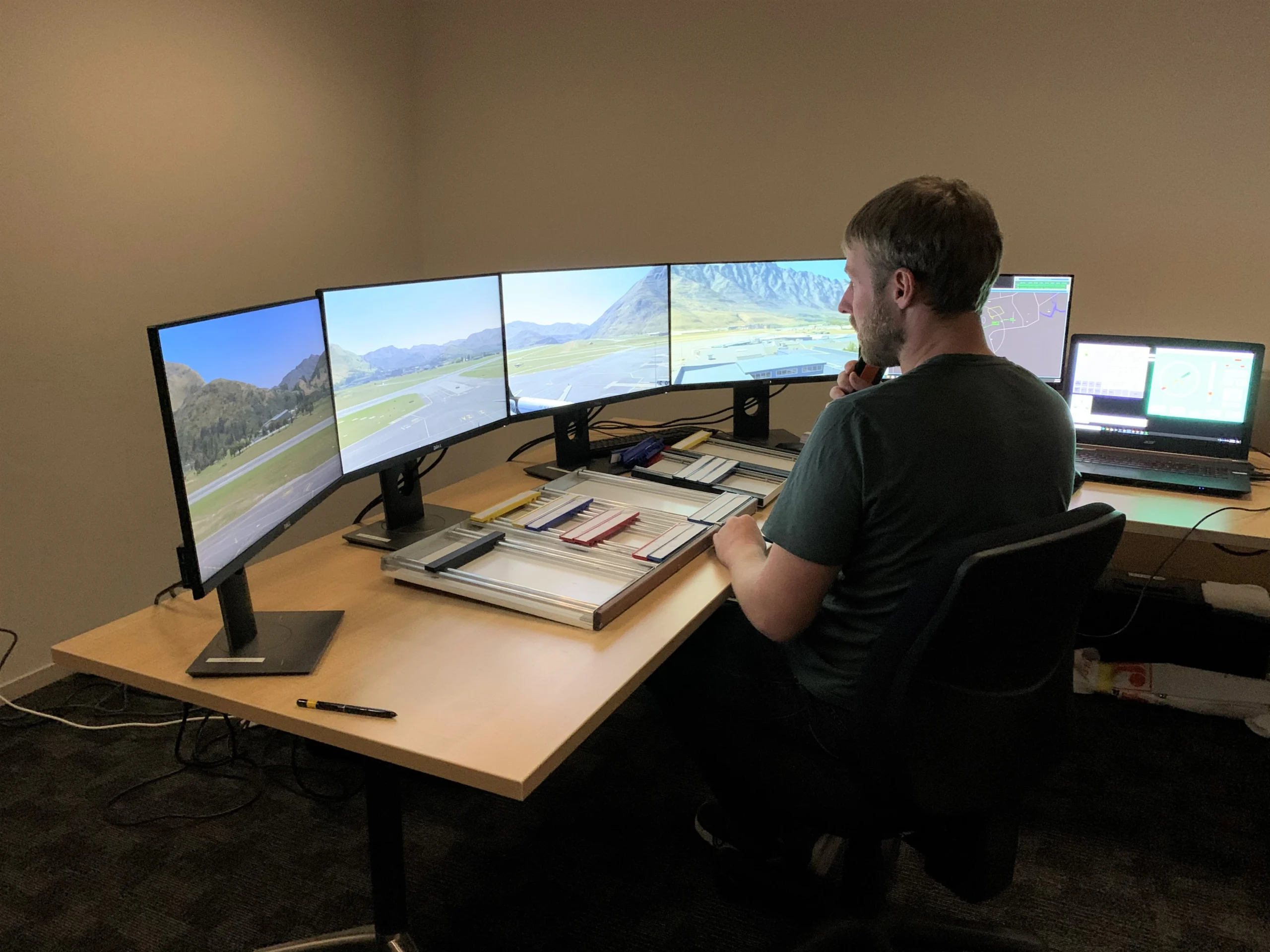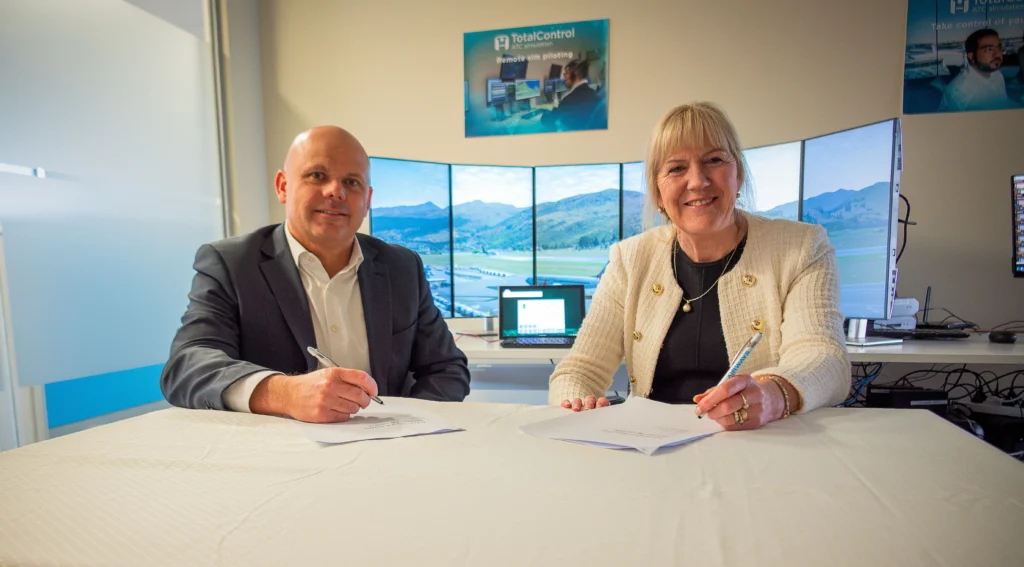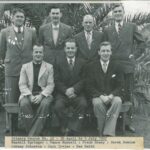Sim as a service – revolutionising ATC training

Jonny Cooke
Acting Head of Products
The “simulation as a service” (SAAS) model has been pioneered by Airways International following years of investigation and discovery into the range of challenges customers were facing when it came to procuring air traffic control (ATC) simulators and running ATC training.
It’s an approach that’s attracting the attention of a number of global air navigation service providers (ANSPs) providing training for their ATCs. As they grapple with the challenges of owning, maintaining and supporting their own on-premise simulator, and gaining the maximum training benefit from it – many ANSPs are considering how a cloud-based mobile solution could be a better fit for their ATC training requirements and what future potential a services based model might have.
The start of the journey – unlocking remote simulation training
Let’s hark back to 2020 when the Covid pandemic hit – international borders closed, and international and domestic travel was halted. We had a situation where Airways controllers from towers around New Zealand couldn’t get on a plane and come to train on our simulators in Christchurch, so we fast-tracked our investment in a cloud solution for TotalControl simulation – enabling us to deliver mobile simulation training and remote sim piloting via a fleet of dispersed simulators.
This was a significant step change from the traditional on-premise model that Airways International and our competitors have been implementing for the past 10-15 years.
Airways now operates three mobile simulators for their ATC training, moving them around units across the country to meet their training requirements, and regularly utilising Airways International’s remote sim piloting services.


Our mobile sims have been designed to be compact, easy to set up and easy to transport. Their size can be scaled up or down to suit customers’ training needs, and just like all TotalControl sims they offer high-fidelity simulation experiences, replicating aerodrome environments with remarkable realism.
While remote simulation training delivery is a critical piece of the puzzle that makes up the SAAS model – there are many more pieces to lock into place.
Harnessing modern tech to shake up the sim ownership model
Airways International has been operating the SAAS model in New Zealand for a number of years. Our parent company Airways New Zealand has a robust simulator training strategy, with many TotalControl simulators in daily use across the country providing operational refresher, currency and conversion courses to hundreds of air traffic controllers. Airways outsources all of its simulation based services to Airways International’s TotalControl team, such as:
- Pseudo piloting
- Scenario creation and modification
- Aerodrome and AIP maintenance
- Software release testing
- Simulator training, maintenance and support.
By outsourcing the provision of the simulation service, Airways is able to focus on ensuring that all ATCs gain regular and effective simulation training to meet their training requirements.
Until recently this model was only viable within New Zealand, and required a significant investment in country-wide networking and infrastructure.
However with the investment into TotalControl Cloud and remote simulation deliveries, this model which has worked so effectively in New Zealand can now be offered to TotalControl present or future customers globally.
ANSPs often underestimate the ongoing financial and time investment required to ensure successful outcomes for their simulator training. Procuring a simulator and getting through commissioning is just the first step – there are many other ongoing, often complex tasks and actions required by ANSPs to get the maximum benefit out of their simulator.
Simulation as a Service

We’re now in the unique position of being able to offer an effective “pick and mix” of these services remotely – all that’s needed is an internet connection.
Cloud-based services attracting global interest
The SAAS model is gaining traction for Airways International globally. I presented about our cloud-based simulation technology and our strategy to develop this service model at Airspace World in Geneva in March 2024, and since then we’ve been fielding interest from across the globe.

Airservices Australia reached out to us because they could see the potential, and have now signed a contract for a three-year trial where they’ll be testing the viability of our mobile simulation offering. They will also trial our remote sim piloting service, to be delivered remotely via Airways International’s pool of sim pilots in New Zealand.
This contract is the first of its kind for Airways International. For Airservices Australia it will enable the delivery of local training, as well as supporting operational continuity through reduced disruption to work schedules.
As part of the contract, Airservices Australia will effectively be leasing a TotalControl mobile simulator to deliver Compromised Separation training for ATCs around the country – either at or near their control towers. Our TotalControl team will remotely provide simulator piloting, exercise preparation and testing, AIP updates, and updates of aerodrome environments and graphics. We will support the hardware as well as providing software support, and analytics and reporting.
The SAAS model brings numerous benefits to the air traffic management sector, one of the most significant being cost efficiencies. By eliminating the need for extensive physical infrastructure and reducing travel expenses, SAAS makes high-quality ATC training more accessible and affordable for ATCs and training providers alike. This is particularly advantageous for smaller ANSPs or those with limited resources.
Further investment in cloud technology
As the technology evolves and we further understand the needs of our customers, we continue to invest in our TotalControl cloud solution. Right now our focus is on developing more cloud based monitoring and assessment tools, digitising Periodic Training Reviews (PTRs), and integrations with learning management systems.
Simulation as a service – the future of ATC training
As the aviation industry continues to embrace digital transformation, the adoption of SAAS is set to grow. This revolutionary model represents a significant leap forward for ATC training globally. By leveraging the power of the cloud and the mobility of portable simulators, it has the potential to revolutionise the way training is delivered, ensuring that air traffic controllers are well-prepared to manage the skies safely and efficiently.
We’re looking forward to working with more global customers to help to revolutionise their training operations with our advanced mobile simulation and cloud based solution.
About the author
Jonny Cooke
Acting Head of Products, Airways International
Jonny leads the Airways International Products team, which manages product development and delivery for the TotalControl simulation solution, AirShare uncrewed traffic management system, and SureSelect ATC selection solution. Jonny has over 10 years’ experience working in digital products development in an operational, technical and strategic capacity. He has experience in the deployment of a number of software-based products and services (including simulator solutions) to customers around the world. Jonny also holds a Master of Information Technology.
At Airways International, Jonny Cooke leads a high performing cross-functional team of software developers, product managers, and product specialists to design, develop and deliver innovative solutions for aviation.






